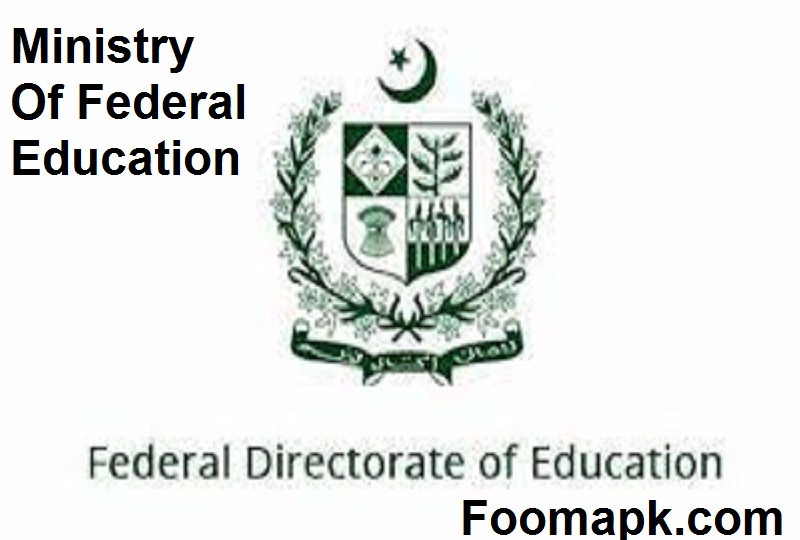Ministry of Federal Education and Professional Training
The Ministry of Federal Education and Professional Training (MFEPT) is a federal ministry in Pakistan.Ministry Of Federal Education The Minister for Education and the Education Secretary are the political and bureaucratic heads of the ministry.
The MFEPT has several branches and is responsible for a broad range of educational activities. For more information on the MFEPT, visit the ministry’s website. The Ministry of Federal Education and Professional Training also manages and promotes PPPs, a form of public-private partnership.

National Education Assessment System NEAS
Pakistan’s National Educational Assessment System, formerly known as NEAS, has been a feature of the education system since 2003.
It is an assessment system that provides resources for educators and parents to identify assessment gaps, and helps teachers and students analyze data.
The test developed by the NEAS unit was designed to test students’ knowledge and skills in various subject areas. It incorporated the national assessment framework and was administered in conjunction with background questionnaires that collected data about the educational context of student achievement.
The survey was completed by teachers, head teachers, and parents. The NEAS unit also trained education assessment teams. Its purpose was to improve the educational system of Pakistan.
The NEAS has been a vital part of the educational system in Pakistan. It conducts national achievement testing for students in grades four and eight, and it is part of the Ministry of Federal Education and Professional Training’s budget.
This year’s results were presented at a two-day stakeholder’s conference in Islamabad, attended by academics, researchers, and heads of Examination Boards. Moreover, representatives of educational institutions, NGOs, and developmental partners were also present.
National Talent Pool
In order to attract top professionals, the Ministry of Federal Education and Professional Training has developed a scheme called the National Internship Program.
The program provides financial assistance to recent graduates and keeps them engaged in their chosen profession. Another government initiative is the National Talent Pool, which seeks to develop an online database for identifying and cultivating top professionals.
The database will collect basic personal data of these professionals, including their work experience and professional attainments.
The standing committee on Federal Education and Professional Training met on the 20th of March 2019 under the chairmanship of Mian Najeeb ud Din Awaisi.
The meeting was held in Committee Room No.7 of Parliament House, Islamabad. The members of the committee welcomed the participants. The members of the committee gave their respective speeches.
The Standing Committee on Federal Education and Professional Training (FEPTE) discussed the issues pertaining to the National Talent Pool.
National Internship program
The federal internship program at the Ministry of Education and Professional Training is a great way for undergraduate students to gain valuable experience in a government-related organization.
Not only do these internships pay students, they also offer insight into possible careers in the public sector.
There are many types of internships
This program is ideal for recent baccalaureate students from under-represented groups and those with a diverse background and educational background. Internships may be located in government organizations, community-based organizations, and private-sector firms.
The program is geared toward people who are seeking jobs in public sectors and who have a desire to make a difference in their communities. The internship program also offers students educational credit, as long as they enroll in at least half-time courses related to their fields.
The Ministry of Federal Education and Professional Training promotes equal access to education throughout Pakistan. Through education and technical training, it prepares students and professionals for lifelong success.
Through its partnership with the training institutions and youth, the ministry provides market-competitive remuneration and facilities to their employees. And in the meantime, it fosters the creative energy of young people by supporting their studies and helping them develop their professional knowledge.
The Department of Education sponsors internships as an opportunity for students to gain valuable work experience and explore their career goals.
The program promotes student achievement, educational excellence, and equal access for all students. The internship period depends on the nature of the internship and the student’s goals and circumstances.
There is no minimum length for an internship, as long as the student fulfills all requirements. The internship program can also be part-time or full-time.
Policy guidelines on PPPs
The government of Pakistan has made the private sector a major player in school education, and this has become a significant part of the new policy framework. The recent publication of the Working Group on Private Sector Participation in School Education provides detailed information on PPP, including its role in the Twelfth National Plan.
The increasing involvement of the private sector in education is already visible in official national documents. The initial Note on PPP from 2009 suggests that a new platform has emerged for education, but the link between gender and equity is slow to appear in the new policy directive.
Until 2009, there were few official policy guidelines for PPPs in education. India had already been actively pursuing PPPs in infrastructure investments, and the Tenth and Eleventh Plan documents emphasized the importance of such partnerships in public infrastructure.
However, the Thirty-page Note provided a review of PPPs in high-income countries, with a commentary on their applicability to the Indian context.
There are two types of PPPs in education: public-private
partnerships (PPPs) and multi-stakeholder collaborations. These partnerships are not without controversy because there is a hazy association between market solutions and public-private education.
Gender equality was never an explicit goal of the education policy documents in India and Pakistan. Yet, the debate has grown and continues to guide the global agenda on gender education.
The debate has largely been led by North-based institutions and aid agencies. South Asian institutions and scholars have been less vocal about the issue. The pro-PPP arguments in national educational documents are based on outdated PPP forms.